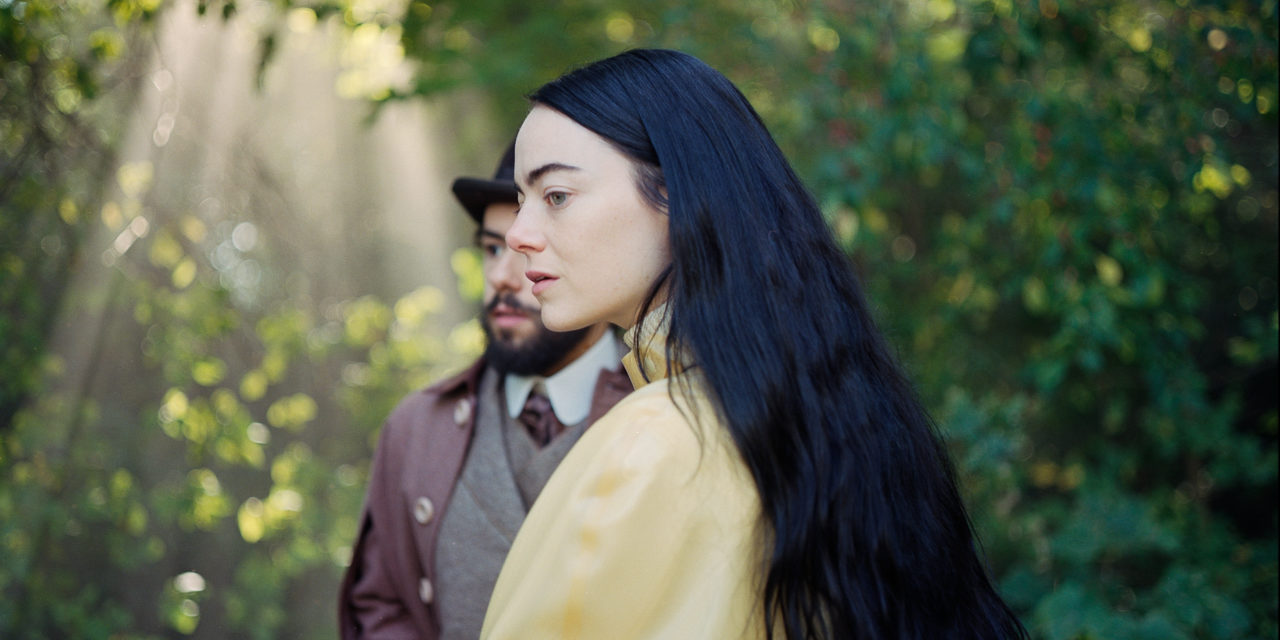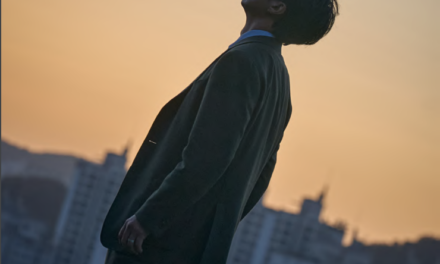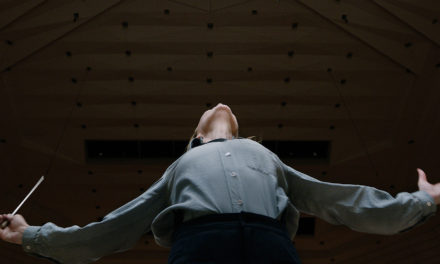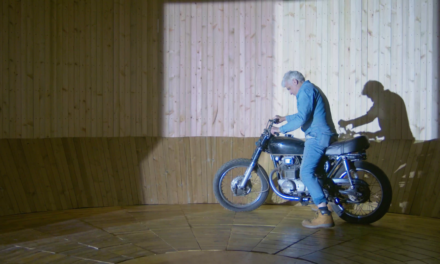It’s cold. I’m really cold, all the time and deeply. I always forget it gets this cold. I have taken to going to the library when not at work to be both productive and avoid my freezing flat or succumb to the unforgivable act of turning on the central heating. It was on a cold night like this (they are every night) that I went to see a 35mm print of ‘Poor Things’ with a sold-out audience in the nice warm refuge of the Glasgow Film Theatre.
Acclaimed Greek director Yorgos Lanthimos’ latest cinematic treat is the gonzo gothic odyssey based on Glasgow writer Alasdair Grays’ 1992 novel of the same name. The story follows Bella who after receiving some rather unconventional surgery is given a second chance at life, relearning and experiencing the vividly baroque Victorian world she inhabits. This reeducation takes place through a perpetual state of globe-trotting from London to Lisbon to Paris as she begins to rediscover reality in her own terms, incongruous to the virtues of ‘polite’ society. It is a perfect vehicle for traversing the double standards and grotesque expectations society places on a human body in such a heightened way that draws out something truly thoughtful and liberated and beautiful and unspoken and honest and hilarious equally. The whole narrative feels like an arcane fable slightly misremembered in its retelling by someone who is acutely over-medicated.
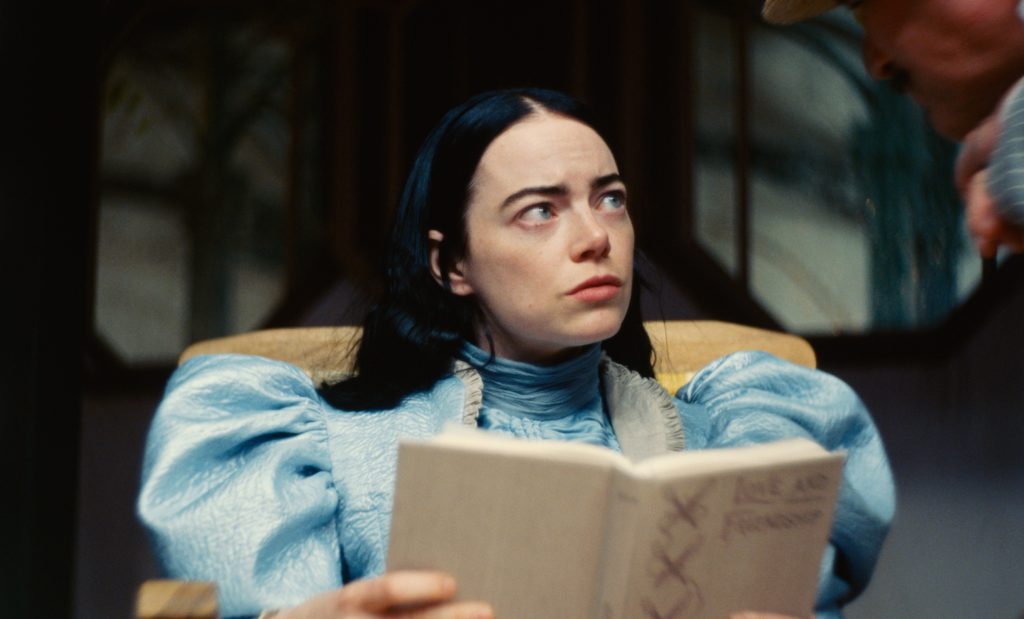
It is singular both in its dazzling stylisation as well as in its presentation of a character who is not shackled to any shame or predetermined expectations of selfhood. Some minor controversy has been levelled at the presentation of sex and sexuality in the film which I think speaks to how habitually sexless mainstream cinema has become in the last decade and something that ‘Poor Things’ tackles head-on. You’re sort of sitting in half-bated breath from some sort of condensed moralisation to be imparted on Bella’s sensory expedition but it stubbornly refuses to materialise. Instead, it is those around her who must learn from her example, with the infantilising title revealing itself to be referring to the controlling men who litter the picture.
“The whole narrative feels like an arcane fable slightly misremembered in its retelling by someone who is acutely over-medicated“
Much to the chagrin of most people I talk to Lanthimos has decided to extract the narrative out of the book’s entrenched Glasgow setting and transplant it to London. This change, though disappointing, feels surprisingly minor in altering what the film’s narrative is attempting to achieve as a large portion of the plotting occurs across its reinterpretation of Europe. Perhaps the decision to avoid Scotland altogether was made to allow its predominantly American cast not to try and brave the accent, although that did not dissuade Willem Dafoe who does so in a manner that makes you wonder if it is indeed a Scottish accent he is attempting and in many respects feels like salt in the wound.
Defoe’s performance in general is wonderful despite this ill-advised accent choice that sort of sputters to varying degrees of prominence. Across the board, performances are wonderful with all players taking big swings. One of the largest is that of Mark Ruffalo who is sort of doing a John Barrymore thing which is delightfully huge and in playful cahoots with the film’s tone, so much so that it acts as a combustible driving force in and of itself. Gone are the intentionally stilted emotionally minuscule modes of performance visible in Lanthimos’ previous filmography and in its place is a huge, deeply inhabited style from all the performers who are equally heightened to fit the sprawling otherworldly nature of the film. The critically lauded central performance from Emma Stone is nothing short of superb, being this rapidly shifting amalgamated characterisation based largely in a theatrical physicality that somehow has to have no subtext or internalisation yet winds up being deeply human and layered. Whilst on the topic of the cast I would also like to give a brief mention to Christopher Abbott who makes a surprise appearance at the end and who is someone I am always delighted to see crop up.
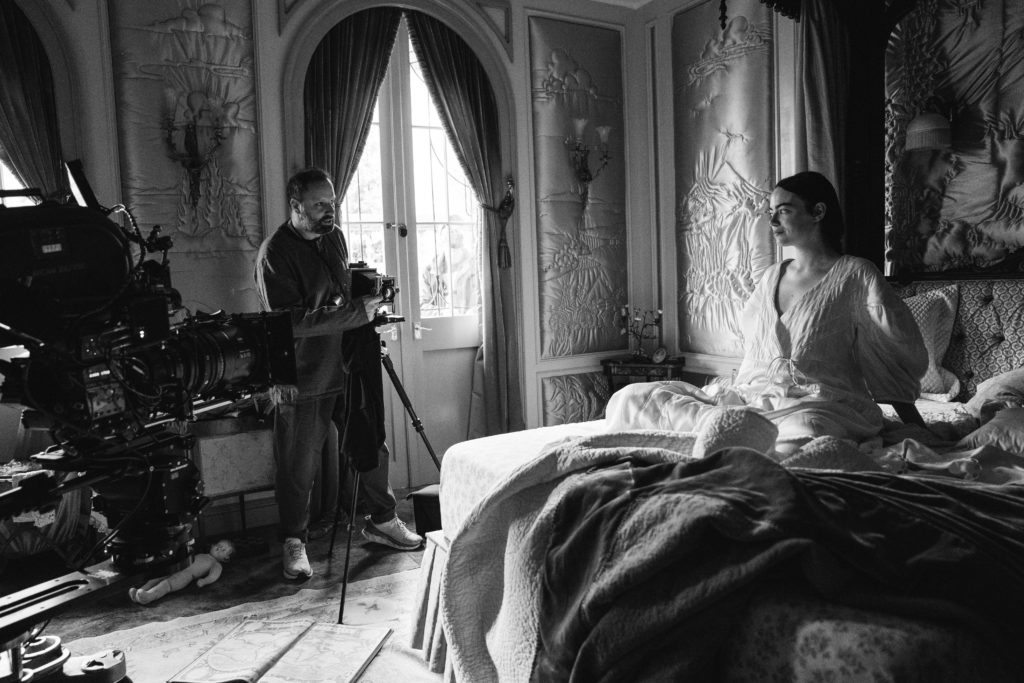
All these performances work to create the pitch-perfect eccentric world of ‘Poor Things’. It’s a world that is inherently artificial and retrograde in its lavish sprawl. As the film unfolds it is constantly shifting and adding to its unique presentation in tandem with our ever changing protagonist. Each addition is something truly inventive whilst never distracting from the narrative or feeling showy. Parts of the film are shot with a 1950’s VistaVision camera and the intensity of colour and saturation feel both like a throwback and on the cutting edge of a new transient style. The film’s cinematographer Robbie Ryan has mentioned Francis Coppola’s Dracula as inspiration. The huge handmade lavish set work speaks largely to this, as does the amazing hand-painted skies and detailed miniature work. With both this and Barbie coming out in the last year scenic artists must be fist-pumping the air. If 2023 has proved anything it’s that studios throwing large amounts of money at artists who understand the scope of production design not only economically pays off but is also a treat to watch.
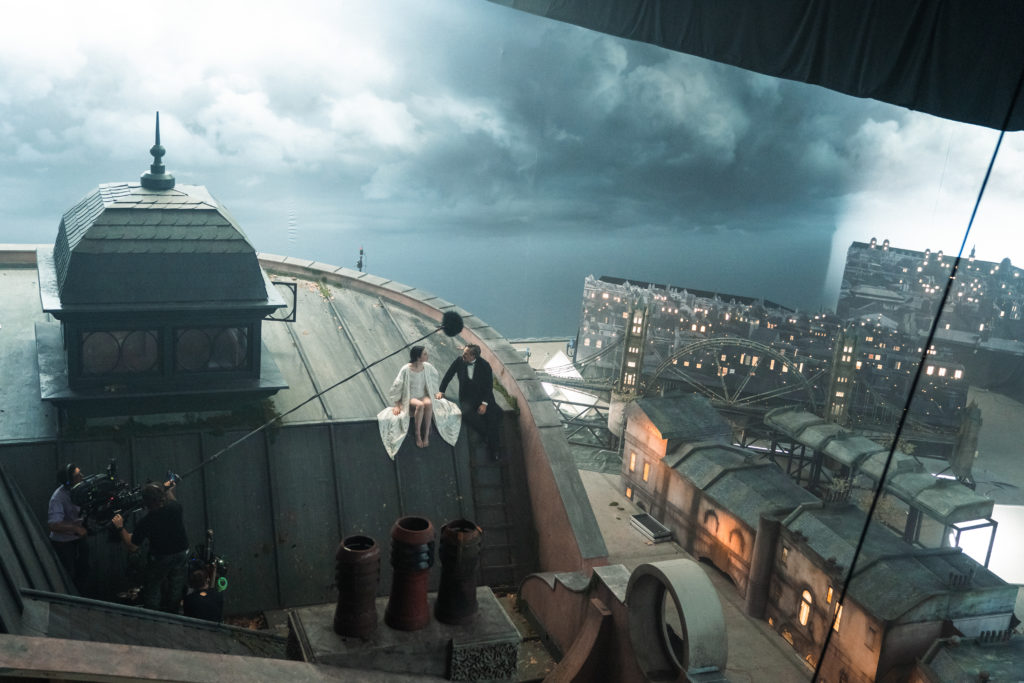
The boundary-less insanity of the visuals are delicately cocooned within one of the best scores I have heard in recent years. Composed by first-timer Jerskin Fendrix the score is vital in constructing the film’s very particular tone and inviting us into its emotional reality. Fendrix has said that a lot of the noises he created were done so through warping synthetic wind instruments and crates something that is sonically disconcerting yet beautiful.
After an exodus on mass from the cinema after the credits rolled I was hit full force by the freezing winter air. For a few brief hours I had been transported away from my constant weather based fretting. After a small debrief in which none of my friends could quite put into words the feeling the film conjured we said our goodbyes and ventured into the perilous unforgiving night. As I shakily trudged my way home I almost immediately, without thinking, put on the ‘Poor Things’ soundtrack to try and recapture that very specific feeling the film miraculously conjured in me. Despite the conditions for a brief moment I felt as though I had been reanimated.

